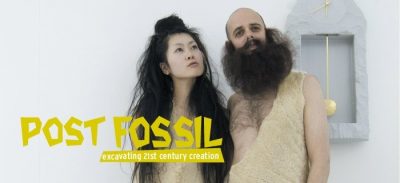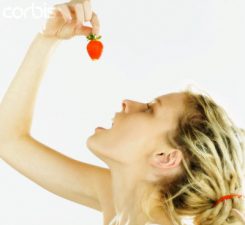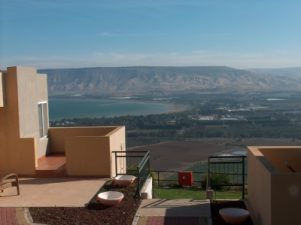
Searching for empowerment: Bedouin women from the Association for the Improvement of Women’s Status meet with visitors from the US.
Fair Trade and preserving local craftsmanship and culture, is an important aspect of the green movement –– at least for those environmentalists who value humankind and the health of its societies. Following that notion, we think it’s appropriate to feature the women from Lakia: as their agrarian society shifts to a western one, Bedouin are getting lost in the Negev dust. Literally. But an NGO founded by Bedouin women for Bedouin women, is giving new purpose to an old way of life. Here is their story.
As the Israeli Bedouin culture, which was once partially nomadic, adapts to the fast-paced ways of modern living, its women are being left behind. Undervalued at home, and with few skills that can lead to gainful employment (most are not allowed to leave the home for outside work), not only do Israeli Bedouin women suffer from high rates of poverty and abuse, they can pass on a sense of hopelessness to their children — a cycle that never ends.
As the once nomadic people transition into the modern way of life, the women are becoming more marginalized. In the past, they had responsibilities in the house — collecting water and wood, taking care of the livestock and setting up the family tent. These are skills no longer valued in their society. But that’s changing.

Determined to find a way to empower themselves, a group of four Bedouin women from the Bedouin town of Lakia, founded the Association for the Improvement of Women’s Status in 1992. Since creating their NGO, the women have been able to build a number of meaningful projects in their society that generate income and a sense of self-worth.
Drawing water from a new kind of well
“The women in Lakia no longer go to the well to collect water, but I tell them that the well is inside us,” says Naama Elsana, a co-founder of the association, who teaches women and their daughters the ancient Bedouin craft of embroidery, a skill that not only creates beautiful clothing and decorative items for the home, but which also transmits stories of the Bedouin way of life, inside the intricately detailed patterns.
In a bold move, the women of the Lakia association have veered from tradition and have created their own style of embroidery. In previous embroidery patterns developed by the tribe’s grandmothers, the men were at the center. (See also One World Many Beads)
“Today, we have our own pattern,” Elsana tells ISRAEL21c, as she shows her creations to a group of American executives visiting her tent as part of a tour by the non-profit foundation, Project Interchange: “In this one as you see here, the four women who have founded this organization are at the center, while the four sheiks of our community, are stitched on the outer corners.”

The well in Lakia (pictured above) used to be the source of community for the Bedouin women of Lakia. Now it is locked.
This past November, Naama and Hessin Elsana, a cofounder of the association, addressed a group of high-powered construction executives from the United States, in Israel at their village. The executives are CEOs and VPs who manage multi-million and billion companies in both America’s East and West Coasts, and had come to Israel for one week, on Project Interchange — seminars which help influential leaders see and experience Israel beyond the conflict, beyond the violence they see on CNN.
In Lakia, beside the greeting tent where guests can eat a traditionally cooked Bedouin lunch, and then hear a lecture with Elsana or one of her partners, there is also a gift shop where visitors can purchase unique jewellery, clothes, wall hangings, purses and handicrafts fashioned by the local Bedouin women.
A library on wheels
The association gives fulltime work to 70 Bedouin women. Teaching the traditional art of embroidery, and then selling the products is the association’s central activity, but there are other community activities that have branched out to further strengthen their society from within.
One is an adult literacy program the women have created, a special kindergarten for their children, and a mobile library, which passes through different neighbourhoods to spread literacy, and human rights education among the town’s children.
Today, Elsana reports that Bedouin women are undergoing a transformation — while only a handful of women went to university 10 years ago, this year there are about 350.
The Association for the Improvement of Women’s Status has an “open-tent” policy, which allows visitors from Israel and the outside world to experience the joys and hardships of being a Bedouin woman. They invite outsiders to come and meet them.
For more feature stories on Bedouin in Israel, see:
Bustan and Bedouin Paint the Desert Green
A Film About A Bedouin Man and His Landscape
Sharing Water Resources With the Bedouin
Buying Fair Trade from Israeli Craftswomen
A Journey Through Bedouin Jewellery
::Desert Embroidery website




4 thoughts on “The Bedouin Ladies of Lakia Weave Together Women and Tradition”
Comments are closed.